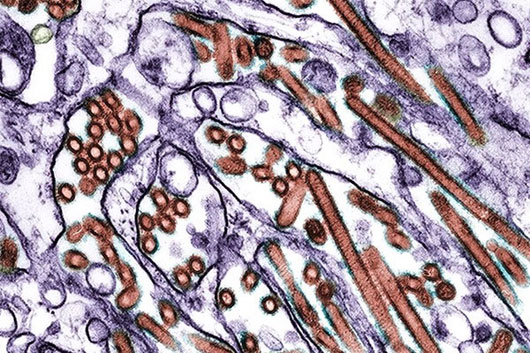The discovery of five mutations in H5N1 determines the spread
According to the Yomiuri network, a research group from Holland Medical Center Erasmus published the results of the study in the journal Cell (USA), which discovered five important positions on the genome of the H5N1 avian influenza virus if replaced. Change can make the virus more infectious.

The results of this study play an important role in monitoring the risk of human-to-human transmission of this dangerous virus.
The team used ferrets, a mammal like humans with progressive human influenza status and compared the possibility of infection after a deliberate genetic mutation.
The result is a mutation in five locations on the gene that promotes the rate of viral proliferation from which H5N1 can spread from weasel to ferret.
The research team said that the results of this study are not necessarily true for human cases but also contribute to 'more important insights on human H5N1 pandemic risk' which may occur in the future.
- Modified H5N1 virus can spread from pigs to humans
- The H5N1 variant can spread to humans through respiration
- 5 mutations make bird flu a pandemic
- Humans know how to say thanks to mutations
- The WHO suspects that H5N1 has spread from person to person
- Small mutations form modern humans
- 10 types of gene mutations are most common in humans
- H5N1 virus is evolving
- Mutations in H5N1 in Turkey
- IAEA uses nuclear technology against H5N1 virus
- H5N1 can spread through the air
- H5N1 virus increases toxicity
 March 2012: Launching H5N1 vaccine for poultry
March 2012: Launching H5N1 vaccine for poultry Experts comment on the mysterious gradual disappearance of the Delta variant in Japan
Experts comment on the mysterious gradual disappearance of the Delta variant in Japan Danger of the two Delta . branch variants
Danger of the two Delta . branch variants 2020 pandemic flu attack humans?
2020 pandemic flu attack humans?